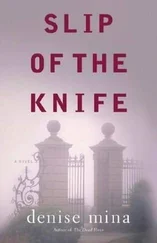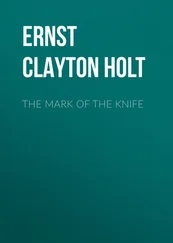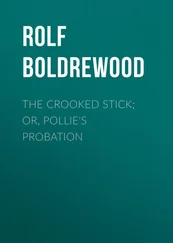Rolf Boldrewood - War to the Knife
Здесь есть возможность читать онлайн «Rolf Boldrewood - War to the Knife» — ознакомительный отрывок электронной книги совершенно бесплатно, а после прочтения отрывка купить полную версию. В некоторых случаях можно слушать аудио, скачать через торрент в формате fb2 и присутствует краткое содержание. Жанр: foreign_antique, foreign_prose, на английском языке. Описание произведения, (предисловие) а так же отзывы посетителей доступны на портале библиотеки ЛибКат.
- Название:War to the Knife
- Автор:
- Жанр:
- Год:неизвестен
- ISBN:нет данных
- Рейтинг книги:4 / 5. Голосов: 1
-
Избранное:Добавить в избранное
- Отзывы:
-
Ваша оценка:
- 80
- 1
- 2
- 3
- 4
- 5
War to the Knife: краткое содержание, описание и аннотация
Предлагаем к чтению аннотацию, описание, краткое содержание или предисловие (зависит от того, что написал сам автор книги «War to the Knife»). Если вы не нашли необходимую информацию о книге — напишите в комментариях, мы постараемся отыскать её.
War to the Knife — читать онлайн ознакомительный отрывок
Ниже представлен текст книги, разбитый по страницам. Система сохранения места последней прочитанной страницы, позволяет с удобством читать онлайн бесплатно книгу «War to the Knife», без необходимости каждый раз заново искать на чём Вы остановились. Поставьте закладку, и сможете в любой момент перейти на страницу, на которой закончили чтение.
Интервал:
Закладка:
In the holidays, too – how surprised he had been to find that the squire no longer shot, fished, hunted. He, that was so keen as long as he could remember, but now sat all day reading in the library, where they often used to find him asleep. And how, before the Christmas holidays came round again, he was sent for, to see his father once more before he died.
The squire spoke not – he had for days lost the power of speech – but he placed his hands upon his head and murmured an inarticulate blessing. He did not look pale or wasted like his poor mother, he remembered. The doctors said there was no particular ailment; he had simply lost all interest in life. The old housekeeper summed up the case, which coincided closely with the public feeling.
"It's my opinion," she affirmed, "that if ever a man in this world died of a broken heart, the squire did. He was never the same after the mistress died, God bless her! She's in heaven, if any one is. She was a saint on earth. And the squire, seeing they'd never been parted before – and I never saw two people more bound up in each other – well, he couldn't stay behind."
The new lord of the manor – for Massinger held manorial rights and privileges, which had been tolerably extensive in the days of "merrie England" – lost no time in taking possession.
A week had not elapsed before the Australian gentleman and his family arrived by train at the little railway station, much like any one else, to the manifest disappointment of the residents of the vicinity, who had expected all sorts of foreign appearances and belongings. Certain large trunks — not Saratogas – and portmanteaux were handed out of the brake-van and transferred to the waggonette, which they filled, while three ladies with their maid were escorted to the mail phaeton which had made so many previous journeys to the station with the visitors and friends of the Massinger family. A middle-aged, middle-sized, alert personage, fair-haired, clean-shaved, save for a moustache tinged with grey, mounted the dog-cart, followed by a tall young man who looked with an air of scrutiny at the horses and appointments. He took the reins from the groom, who got up behind, and with one of those imperceptible motions with which a practised whip communicates to well-conditioned horses that they are at liberty to go, started the eager animal along the well-kept road which led to the Court.
"Good goer," he remarked, after steadying the black mare to a medium pace. "If she's sound, she's a bargain at the money; horses seem tremendously dear in England."
"Yes, I should say so," replied his father. "And the phaeton pair are good-looking enough for anything: fair steppers also. I thought the price put on the horses and cattle high, but the agent told me they were above the average in quality. I see he was correct so far."
"Well, it's a comfort to deal with people who are straight and above-board," said the younger man. "It saves no end of trouble. I shouldn't wonder if the home-station – I mean the house and estate – followed suit in being true to description. If so, we've made a hit."
"Sir Roland wouldn't have a thing wrong described for the world, sir," here put in the groom, touching his hat. "No auctioneer would take that liberty with him; not in this county, anyhow."
"Glad to hear it. I thought as much, from seeing him once," said the elder man.
A short hour saw the black mare tearing up the neatly raked gravel in front of the façade of the Court, and by the time the dog-cart had departed for the stables, the phaeton came up to the door, with one of the young ladies in the driving seat.
"Well, this is a nice pair of horses!" said the damsel, who evidently was not unaccustomed to driving a pair, if not a more imposing team. "Fast, so well matched and well mannered; it's a pleasure to drive them. And oh! what a lovely old hall – and such darling trees! How fortunate we were to pick up such a place! It's not too large: there's not much land, but it's a perfect gem in its way. I suppose we are to have the pictures of the ancestors, too?"
"We shall have that reflected glory," said the matron with a smile. "Sir Roland would not sell them, but hoped we would give them house-room till he wanted them – which might not be for years and years."
"So they will still look down upon us – or frown, as the case may be," said the younger girl. "How savage I should be if I were an ancestor, and new people came to turn out my descendant!"
"We haven't turned him out. We only buy him out," said her mother, "which is quite a different thing. It is the modern way of taking the baron's castle – without bloodshed and unpleasantness."
"It is a great shame, all the same, that he should have to turn out," exclaimed the younger girl, indignantly. "I am sure he is a nice fellow, which makes it all the worse, because – because – "
"Because every one says so," continued her elder sister; "as if that was a reason!"
"No! because he has such good horses . When a man keeps them, in such buckle too, there can't be much wrong with him."
"What is the reason that he can't live in a place like this, I wonder?" queried Miss Lexington in a musing tone. "A bachelor, too! Men don't seem to know when they are well off. He ought to try a dry year on one of our Paroo runs, if he wants a change. That would take the nonsense out of him. Our vile sex at the bottom of it, I suppose!"
"I did catch a whisper in London, before we left," said Miss Violet, cautiously.
"You always do," interrupted her sister. "I hope you don't talk to Pinson confidentially. What was it?"
"Only that a girl that every one seemed to know about wouldn't have him, and that he nearly went out of his mind about it: wouldn't hear of living in England afterwards."
"Poor fellow! he'll know better some day – won't he, mother? He must be a romantic person to go mooning about, wanting to die or emigrate, for a trifle like that."
"I sometimes wonder if you girls of the present day have hearts, from the way you talk," mused the matron. "However, I suppose they're deeper down than ours used to be. But I don't like my girls to sneer at true love. It's a sacred and holy thing, without which we women would have a sad time in this world. But, in our own country, men have done rash things in the agony of disappointment. You have heard of young Anstruther?"
"Oh yes, long ago. He went home and shot himself because of a silly girl. I suppose he's sorry for it now."
"Hearts are much the same, in all countries and ages, depend upon it, my dears; they make people do strange things. But let us hope that there will be no unruly promptings in this family."
"Quite so, mother – same here; but I suppose, as Longfellow tells us, 'as long as the heart has woes,' all sorts of droll things will happen. And now suppose we go and look at the stables before afternoon tea; I want to see the hunters and polo ponies. The garden we can see tomorrow morning."
When Sir Roland, having made final arrangements, concluded to run down to Massinger for farewell purposes, he declined courteously Mr. Lexington's invitation to stay with him, and took up his abode at the Massinger Arms, in the village, where he considered he would be quiet and more independent. He felt himself obliged to say farewell to the people he had known all his life, small and great. But he never had less inclination for conversation and the ordinary society business. A week at the outside would suffice for such leave-taking as he considered obligatory.
As to the emigration matter which had so disturbed his monde , another factor of controlling power entered into the calculation. A re-valuation of his property made it apparent that when every liability came to be paid off, the available residue would be much less than he or his men of business reckoned on. Not more, indeed, than the ridiculously small sum of thirty or forty thousand pounds. He was not going to live on the Continent, or any cheap foreign place, on this. Nor to angle for an heiress. So, having been informed that he could live like a millionaire in the colonies, and probably make a fortune out of a grazing estate which half the money would purchase, there was nothing to keep him in England. Such considerations, reinforced by the haunting memories of a "lost Lenore" in the guise of Hypatia, drove him forward on his course outre mer with such feverish force that he could scarcely bear to await the day of embarkation.
Читать дальшеИнтервал:
Закладка:
Похожие книги на «War to the Knife»
Представляем Вашему вниманию похожие книги на «War to the Knife» списком для выбора. Мы отобрали схожую по названию и смыслу литературу в надежде предоставить читателям больше вариантов отыскать новые, интересные, ещё непрочитанные произведения.
Обсуждение, отзывы о книге «War to the Knife» и просто собственные мнения читателей. Оставьте ваши комментарии, напишите, что Вы думаете о произведении, его смысле или главных героях. Укажите что конкретно понравилось, а что нет, и почему Вы так считаете.












